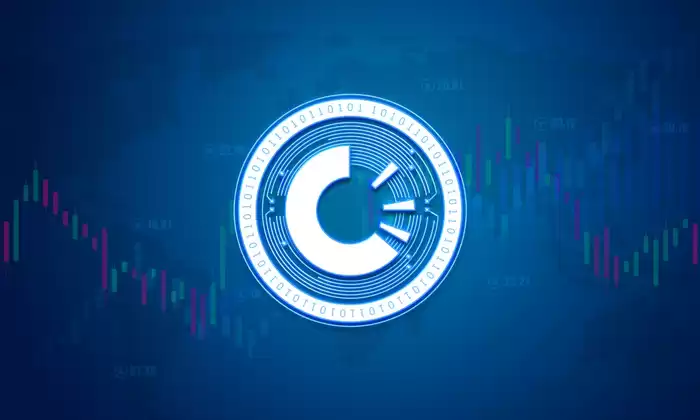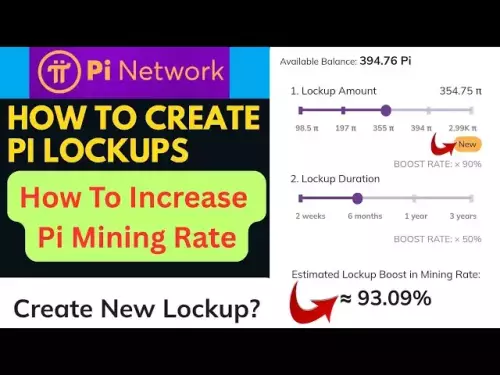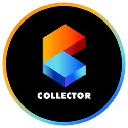-
 bitcoin
bitcoin $114779.865156 USD
2.30% -
 ethereum
ethereum $4226.519789 USD
2.39% -
 tether
tether $1.000545 USD
0.04% -
 xrp
xrp $2.890223 USD
0.92% -
 bnb
bnb $1030.029301 USD
2.95% -
 solana
solana $212.824944 USD
1.69% -
 usd-coin
usd-coin $0.999757 USD
0.01% -
 dogecoin
dogecoin $0.234961 USD
-0.27% -
 tron
tron $0.337174 USD
0.42% -
 cardano
cardano $0.804783 USD
0.09% -
 hyperliquid
hyperliquid $45.748770 USD
-2.85% -
 chainlink
chainlink $21.699170 USD
0.82% -
 ethena-usde
ethena-usde $1.001452 USD
0.08% -
 avalanche
avalanche $30.237800 USD
1.14% -
 stellar
stellar $0.372604 USD
1.52%
What coin is TRAC?
TRAC's ability to provide immutable provenance tracking empowers businesses with enhanced transparency, accountability, and brand reputation throughout their supply chains.
Nov 19, 2024 at 09:04 pm

What is TRAC?
Origin Traceability Token (TRAC) is an Ethereum-based token that enables businesses to establish the provenance of their products and services. By incorporating blockchain technology, TRAC creates an immutable and tamper-proof record of every step in the supply chain, from sourcing to production to distribution.
This allows consumers to have verifiable assurance about the authenticity and origin of the products they purchase, while also providing businesses with enhanced transparency, traceability, and brand reputation.
Key Features of TRAC:
- Provenance Tracking: TRAC records every transaction and movement of goods throughout the supply chain, providing a comprehensive history of each product.
- Supply Chain Visibility: Stakeholders can access real-time information about the location, status, and condition of goods in transit.
- Counterfeit Prevention: The unique blockchain-based identification system helps prevent counterfeiting and protects the integrity of products.
- Consumer Confidence: Consumers can scan a QR code on TRAC-enabled products to view the full provenance record, enhancing trust and brand loyalty.
Applications of TRAC:
TRAC has a wide range of applications across various industries:
- Luxury Goods: Authentication and tracking of high-value items, such as jewelry, watches, and designer clothing.
- Pharmaceuticals: Verifying the authenticity and preventing counterfeiting of medications, ensuring patient safety.
- Food and Beverage: Ensuring the integrity of food products, tracing their origin and production practices to meet consumer demands for transparency.
- Agriculture: Tracking the cultivation, harvesting, and distribution of agricultural products to maintain quality standards and promote sustainability.
- Raw Materials: Establishing transparency in the sourcing of raw materials, combating unethical practices and supporting sustainable sourcing.
How to Use TRAC:
Step 1: Integrate TRAC into Supply Chain
- Implement TRAC technology within the existing supply chain infrastructure.
- Assign unique TRAC identifiers to products and track their movements through the chain.
Step 2: Create TRAC Events
- Capture key events in the supply chain, such as production, packaging, and distribution.
- Record these events as TRAC events, providing detailed information about the time, location, and conditions.
Step 3: Access Provenance Information
- Access the TRAC platform to view the complete provenance record of any TRAC-enabled product.
- Trace the product's journey from origin to present location, ensuring authenticity and transparency.
Step 4: Verify Product Authenticity
- Scan the QR code on TRAC-enabled products to verify their authenticity.
- Review the provenance record to confirm the product's origin, production practices, and distribution channels.
Step 5: Enhance Consumer Trust and Confidence
- Communicate TRAC integration and provenance tracking to consumers through packaging, marketing materials, and online channels.
- Build consumer trust by providing access to transparent and verifiable product information.
Disclaimer:info@kdj.com
The information provided is not trading advice. kdj.com does not assume any responsibility for any investments made based on the information provided in this article. Cryptocurrencies are highly volatile and it is highly recommended that you invest with caution after thorough research!
If you believe that the content used on this website infringes your copyright, please contact us immediately (info@kdj.com) and we will delete it promptly.
- ChatGPT, Bitcoin, and $HYPER: Riding the Crypto Wave
- 2025-09-30 16:25:14
- Mutuum Finance (MUTM): Riding the DeFi Wave with Crypto Price Prediction
- 2025-09-30 16:25:14
- XRP ETF Approval Odds Soar: Analyst Predicts $33 Price Surge!
- 2025-09-30 16:30:01
- Keel, Solana, and Sky Stablecoin: Fueling the Future of DeFi
- 2025-09-30 16:45:13
- EcoChain, DePIN Infrastructure, and X1Nodes: Powering the Web4 Revolution
- 2025-09-30 16:30:01
- Pi Network's Institutional Momentum: Leading the Web3 Revolution
- 2025-09-30 16:45:13
Related knowledge

What is Ethereum’s Slashing mechanism and how to punish malicious behavior?
Feb 20,2025 at 03:08am
Key PointsOverview of slashingDifferent types of slashing in EthereumIncentives and consequences of slashingIdentifying and reporting slashed validato...

What is the verifier node of Ethereum and how to become a verifier?
Feb 19,2025 at 06:00pm
The Verifier Node of Ethereum: A Comprehensive GuideKey Points:What is a Verifier Node?How to Become a Verifier NodeResponsibilities and Rewards of a ...

What is Ethereum’s staking, and how to participate and earn money?
Feb 19,2025 at 04:37pm
Key Points:Understanding Ethereum's Staking MechanismSteps to Participate in StakingBenefits and Rewards of StakingSecurity and Risk ConsiderationsTec...

What is Ethereum’s DAO (Decentralized Autonomous Organization) and how does it work?
Feb 20,2025 at 03:12am
Key PointsDefinition and Structure of a DAOGovernance and Decision-Making in DAOsBenefits and Use Cases of DAOsChallenges and Limitations of DAOsWhat ...

What is Ethereum's multi-signature wallet and how to improve security?
Feb 20,2025 at 02:18pm
Key Points:Understanding the Concept of a Multi-Signature WalletBenefits and Drawbacks of Multisig WalletsRequirements for Setting Up a Multisig Walle...

What is Ethereum's oracle and how to provide data for smart contracts?
Feb 21,2025 at 01:30am
Key Points:Understanding the concept of oracles in EthereumExploring different types of oraclesDetailed guide on how to provide data for smart contrac...

What is Ethereum’s Slashing mechanism and how to punish malicious behavior?
Feb 20,2025 at 03:08am
Key PointsOverview of slashingDifferent types of slashing in EthereumIncentives and consequences of slashingIdentifying and reporting slashed validato...

What is the verifier node of Ethereum and how to become a verifier?
Feb 19,2025 at 06:00pm
The Verifier Node of Ethereum: A Comprehensive GuideKey Points:What is a Verifier Node?How to Become a Verifier NodeResponsibilities and Rewards of a ...

What is Ethereum’s staking, and how to participate and earn money?
Feb 19,2025 at 04:37pm
Key Points:Understanding Ethereum's Staking MechanismSteps to Participate in StakingBenefits and Rewards of StakingSecurity and Risk ConsiderationsTec...

What is Ethereum’s DAO (Decentralized Autonomous Organization) and how does it work?
Feb 20,2025 at 03:12am
Key PointsDefinition and Structure of a DAOGovernance and Decision-Making in DAOsBenefits and Use Cases of DAOsChallenges and Limitations of DAOsWhat ...

What is Ethereum's multi-signature wallet and how to improve security?
Feb 20,2025 at 02:18pm
Key Points:Understanding the Concept of a Multi-Signature WalletBenefits and Drawbacks of Multisig WalletsRequirements for Setting Up a Multisig Walle...

What is Ethereum's oracle and how to provide data for smart contracts?
Feb 21,2025 at 01:30am
Key Points:Understanding the concept of oracles in EthereumExploring different types of oraclesDetailed guide on how to provide data for smart contrac...
See all articles










































































